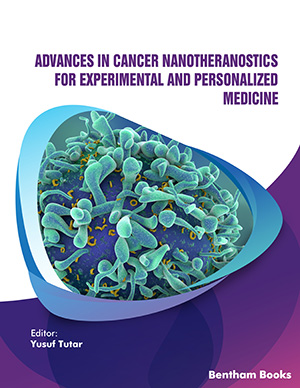Abstract
The fate of cancer cells is predicted not only by its intrinsic oncogenic engines, but also by its surrounding milieu. Beyond the tumor margin at the tumor microenvironment (TME), there is an orchestra of immune cells and soluble mediators known as the cellular and non-cellular components of TME that shape the tumor architecture. Several reports have focused on immune cells influencing the cellular components of the TME, therefore the main focus of our chapter will be the noncellular components of TME. The non-cellular components of TME include cytokines, chemokines, growth factors, inflammatory and extra-cellular matrix remodeling enzymes that are released by the tumor cells or associated immune cells in the TME. These soluble mediators outline the progression of the disease by mediating the communication taking place between the tumor cell itself and its surrounding. Considering that TME is a critical determinant in unraveling the complexity of cancer cells, thus, zooming in at the TME would definitely help us pave the road for new combinatory immuno-oncological interventions incorporating the TME in their mechanism of action and thus lowering the chances of relapse rates among cancer patients.
Keywords: Angiogenesis, Angiogenic switch, Cancer Associated Fibroblasts (CAF), Cytokines, Chemokines, Extracellular Matrix (ECM), Growth factors (GFs), Hypoxia, Hypoxia inducing Factor-1 (HIF-1), Inflammation, Immune surveillance, Remodeling enzymes, Tumor microenvironment (TME), Tumor Infiltrating Lymphocytes (TILs), T cell exhaustion, Tumor associated Macrophages (TAMs).






















